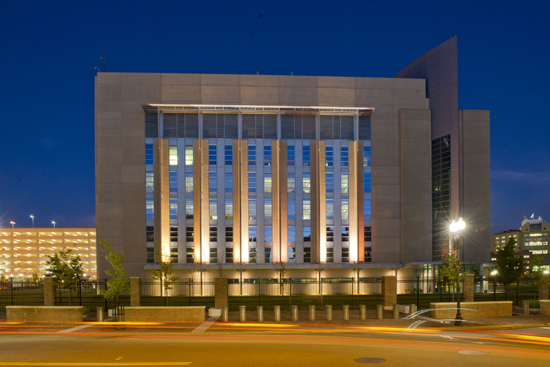State Approves NEIDL Biosafety Level 3, 4 Research — Next: BU to seek Boston Public Health Commission permission

In an action that moves BU’s National Emerging Infectious Diseases Laboratories (NEIDL) closer to full operation, the Massachusetts Secretary of Energy and Environmental Affairs has given approval for the lab to conduct research at Biosafety Level 3 (BSL-3) and Biosafety Level 4 (BSL-4). The state agency issued a Massachusetts Environmental Policy Act (MEPA) certificate on Friday, clearing the way for the issuance of final state permits for the project.
The Secretary’s report states that the Supplemental Final Environmental Impact Report submitted by Boston University “adequately and properly complies with the Massachusetts Environmental Policy Act and with its implementing regulations.”
John Murphy, interim director of NEIDL and a School of Medicine professor of medicine and microbiology, says he is pleased that the MEPA process has had a positive finding. “Our research will make important contributions toward improving public health and will have local, national, and global impact,” he says.
Boston University will now request permission from the Boston Public Health Commission to transfer ongoing BSL-3 research from an existing BSL-3 lab on the Medical Campus to the NEIDL. This research involves tuberculosis-related bacteria and finding new ways to treat the disease, including improved vaccines.
BSL-4 research will not begin until some additional regulatory and judicial determinations are made.
Construction on the $200 million facility was completed in September 2008, but controversy and litigation have kept much of the building’s 192,000 square feet of laboratory space closed.
This BU Today story was written by Art Jahnke